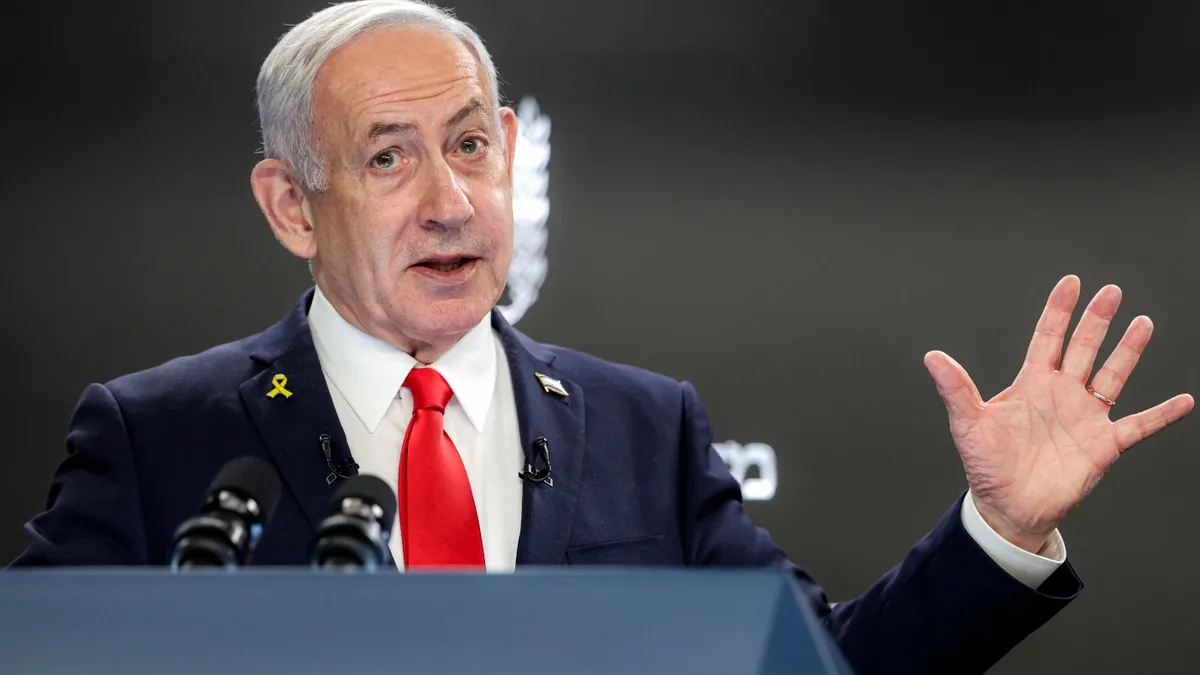
On Sunday, Israeli Prime Minister Benjamin Netanyahu outlined a significant and contentious strategy to seize control of Gaza City and the remaining parts of the Gaza Strip not currently under Israeli control. In a press conference held in Jerusalem, Netanyahu's comments have sparked widespread protests across Israel, with tens of thousands of citizens voicing their opposition to the plan, which was approved by Israel's Security Cabinet earlier that week.
Netanyahu's strategy involves the mass displacement of the Palestinian population in Gaza, raising alarms among humanitarian organizations and international observers. He stated that approximately 75% of Gaza is already under Israeli military control and that Israeli forces intend to clear Gaza City and central areas of civilians. The Prime Minister emphasized that this would be achieved by facilitating safe passage for individuals to designated safe zones, where they would receive basic necessities such as food, water, and medical care. However, he did not provide specifics on how the transportation of Gaza's population, estimated at around 2 million, would be safely managed.
The families of hostages currently held by Hamas have condemned Netanyahu's plan, urging his government to pursue a ceasefire that would enable the safe release of approximately 50 hostages, many of whom are believed to still be alive. In response to these families, Netanyahu maintained that his course of action was the most effective way to expedite an end to the conflict, despite growing tensions and discontent among the population.
Netanyahu’s announcement comes amid increasing international scrutiny regarding the ongoing humanitarian crisis in Gaza. Critics have raised concerns about reports of starvation and famine conditions affecting the population, with various experts confirming instances of severe malnutrition. As the Prime Minister addressed reporters, he displayed images of malnourished children, dismissing claims of starvation as malignant lies.
The humanitarian situation in Gaza has deteriorated significantly, with reports indicating that Israeli strikes have resulted in over 61,000 Palestinian deaths since the onset of hostilities. Furthermore, nearly 1,800 individuals have been killed while attempting to secure food aid in recent weeks, primarily due to Israeli military actions. The U.N. Office for the Coordination of Humanitarian Affairs has raised alarms about the complete collapse of the humanitarian system in Gaza, with hospitals lacking protection and essential medical supplies.
In response to the government's planned offensive, mass protests erupted across Israel, particularly in Tel Aviv, where tens of thousands participated. Demonstrators included former hostages who expressed concern that the new military actions could jeopardize the lives of those still in captivity. The Hostages and Missing Families Forum issued a statement emphasizing that expanding military operations would endanger both hostages and soldiers alike.
International condemnation of Israel's strategy has been widespread, with leaders from the Arab world and Europe voicing their discontent. Palestinian Authority President Mahmoud Abbas labeled the plan a "complete crime" that constitutes a violation of international humanitarian law. Additionally, a coalition of European foreign ministers publicly criticized Israel's approach, warning that it would exacerbate the humanitarian crisis in Gaza and lead to further casualties among civilians.
Amidst the escalating tensions, the U.S. has taken a nuanced stance. Dorothy Shea, the U.S. interim ambassador to the U.N., affirmed Israel's right to defend its security interests while highlighting the need for Hamas to release hostages and allow humanitarian access. This aligns with statements made by former President Donald Trump, who expressed that decisions regarding Gaza's occupation rest with Israel.
As the situation continues to unfold, the potential for further conflict looms large, raising critical questions about the future of Gaza and the ongoing humanitarian crisis affecting its residents.